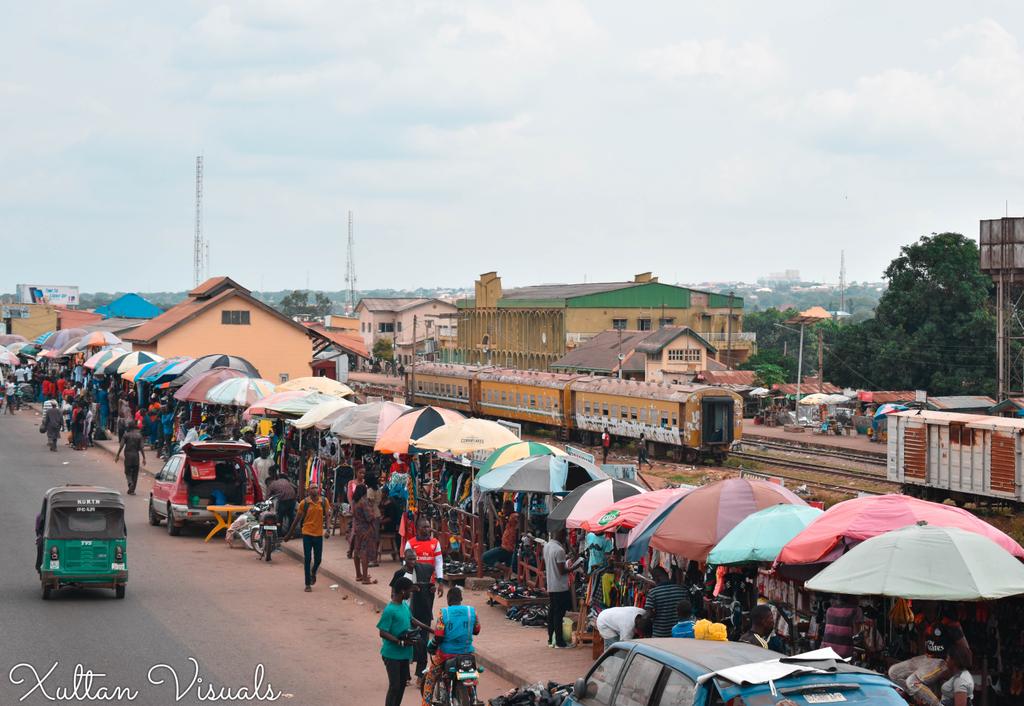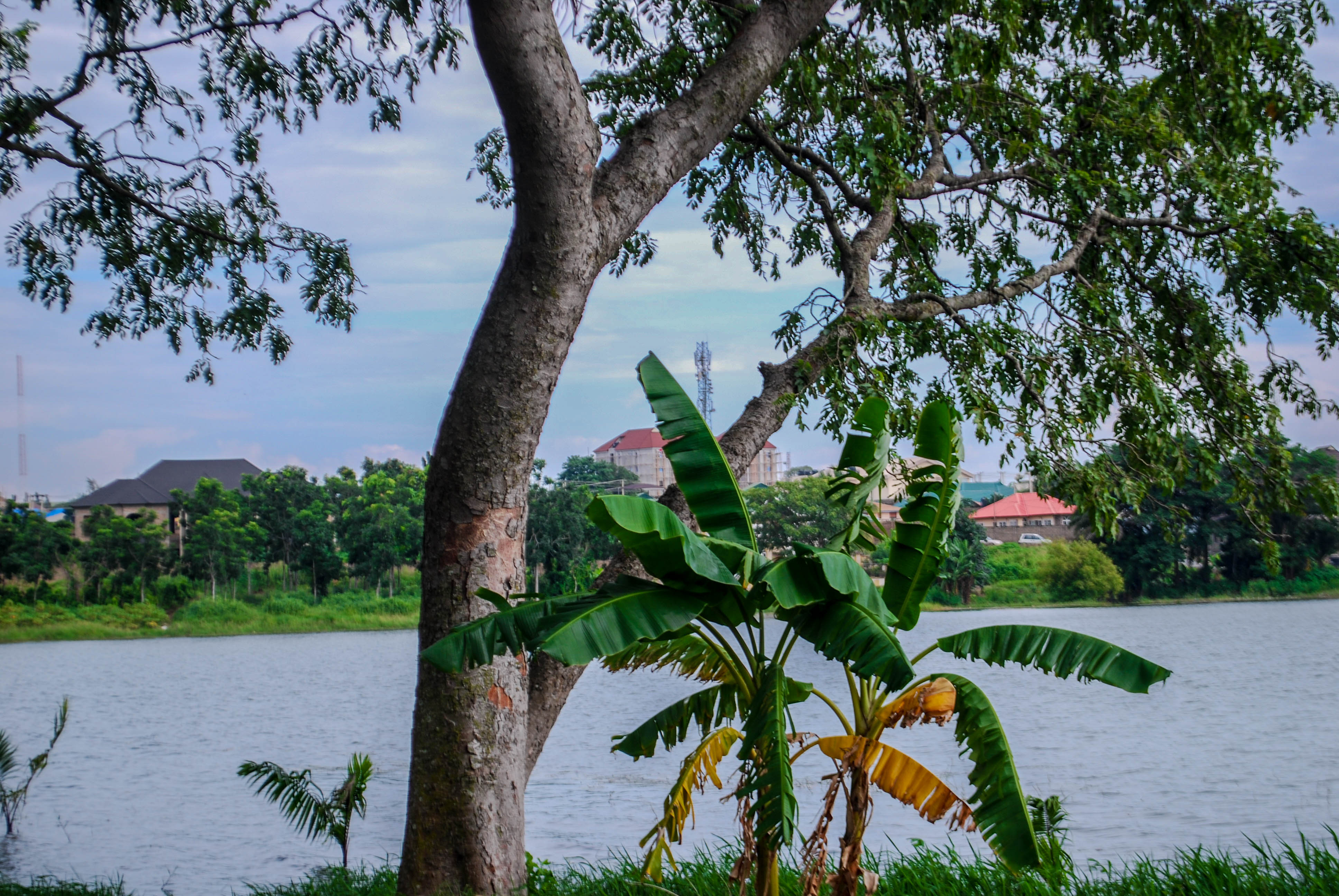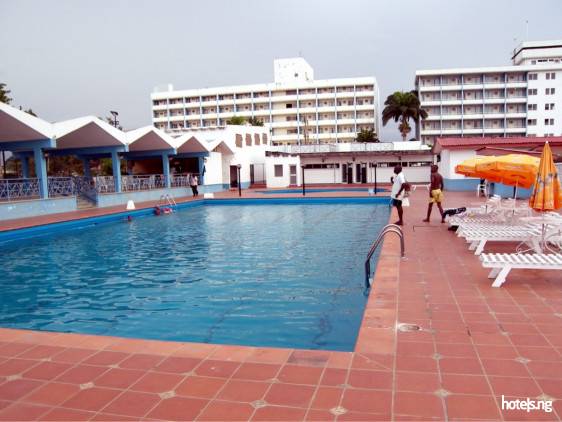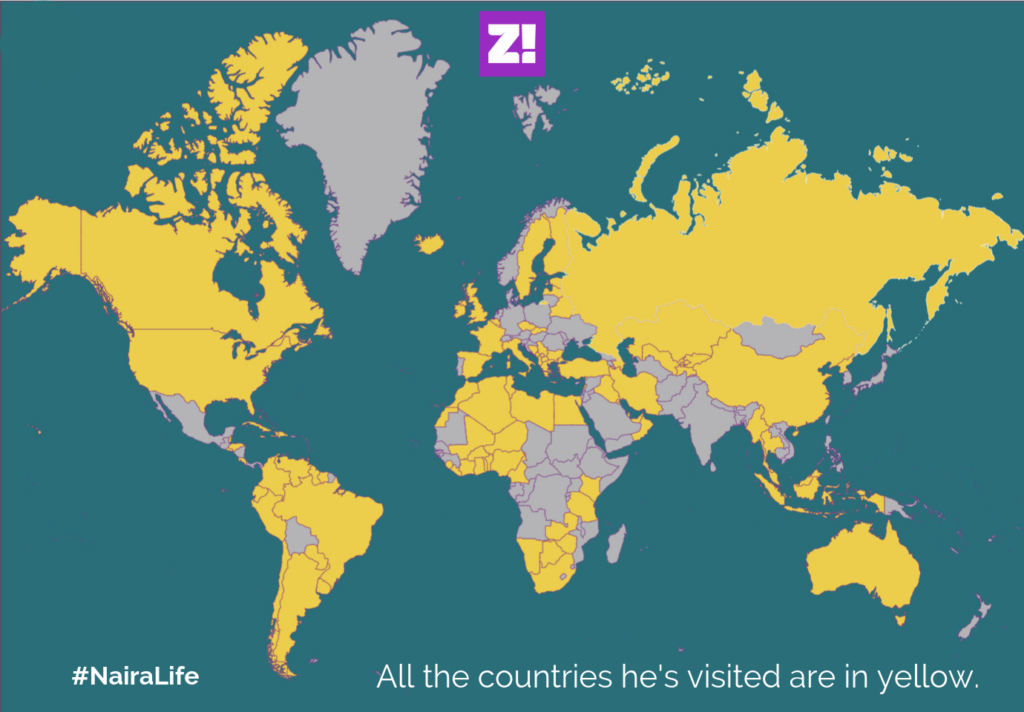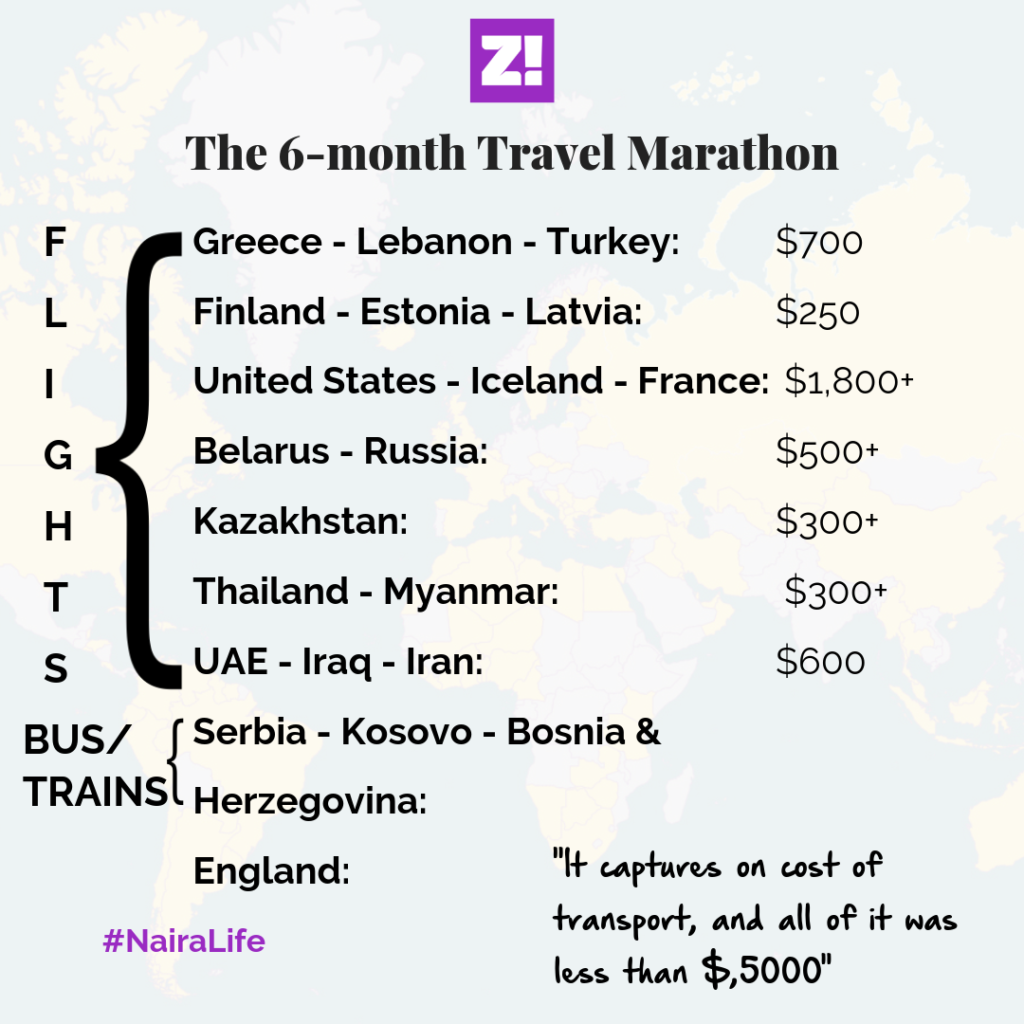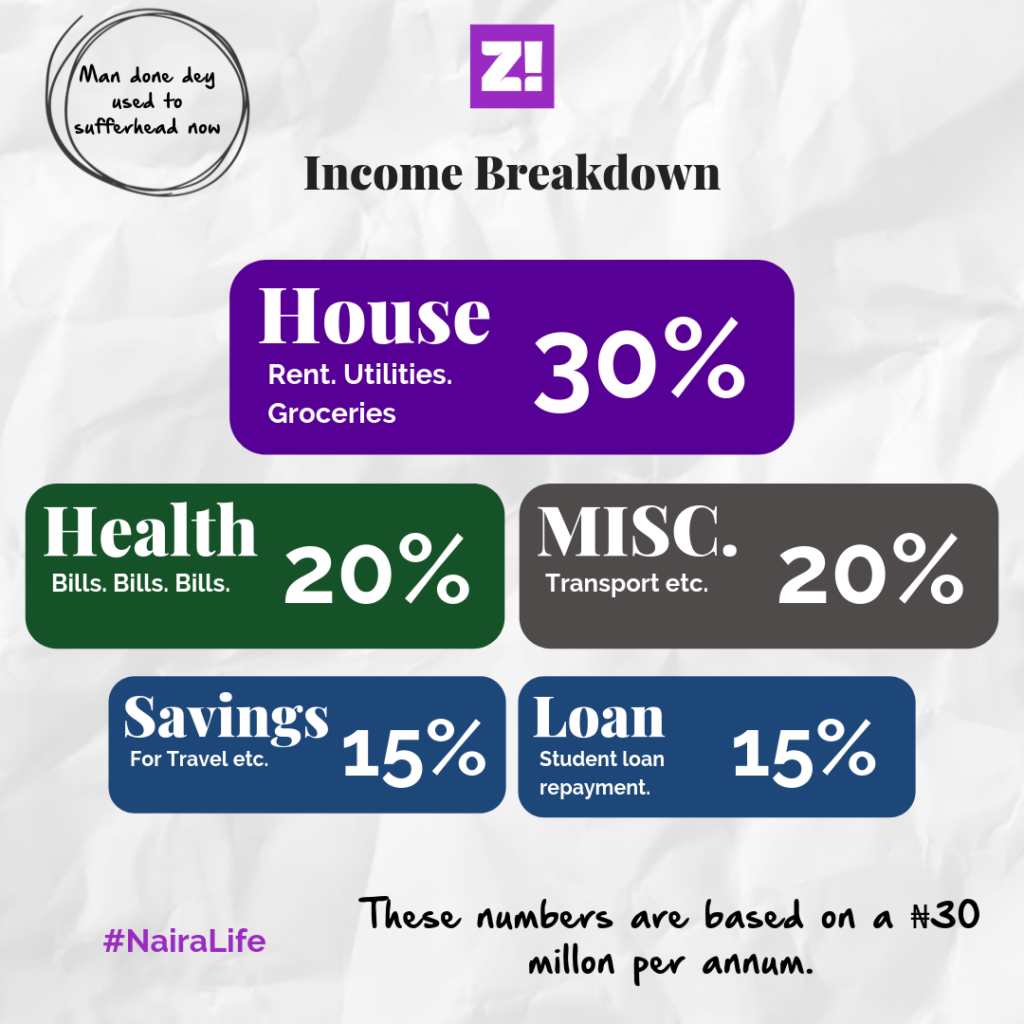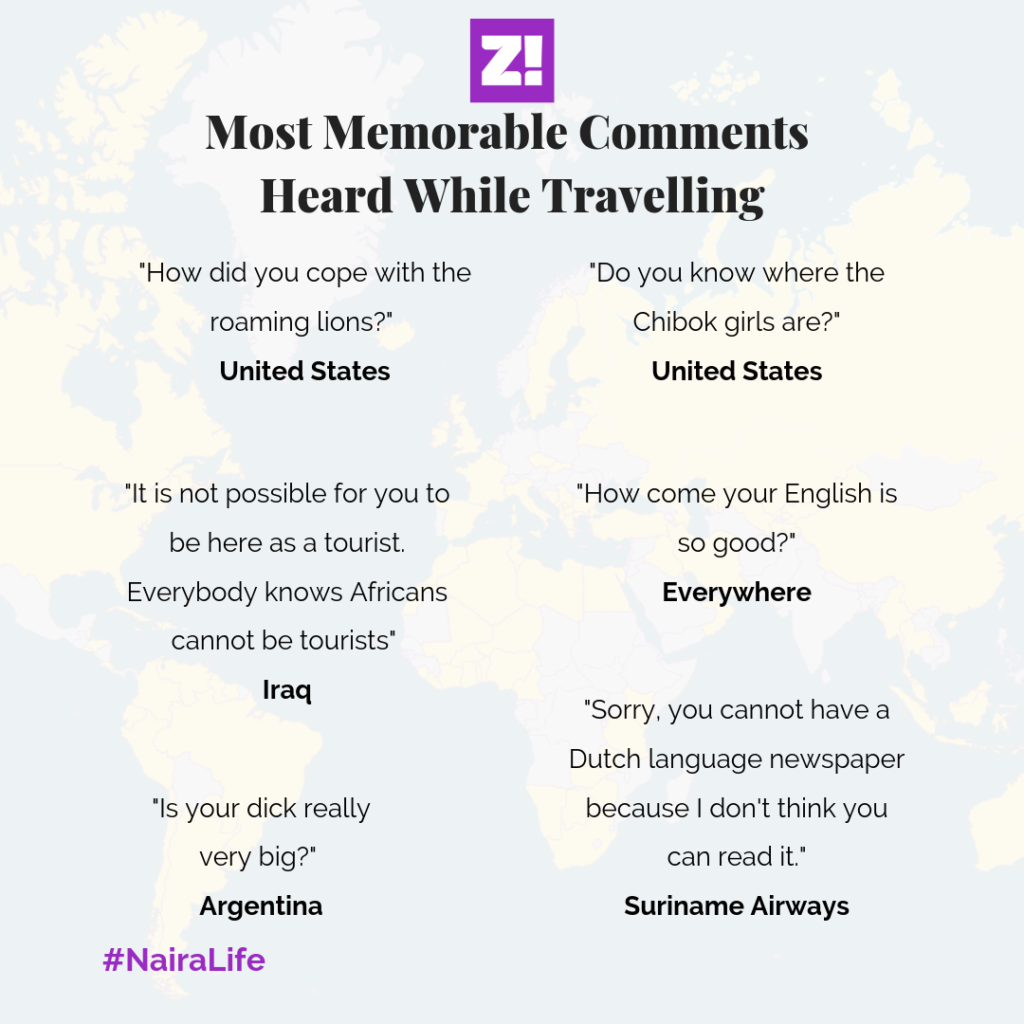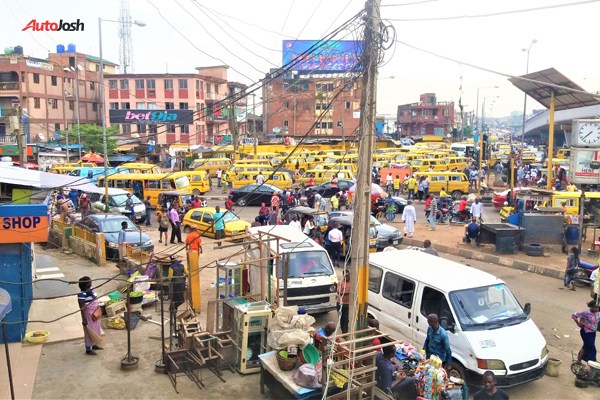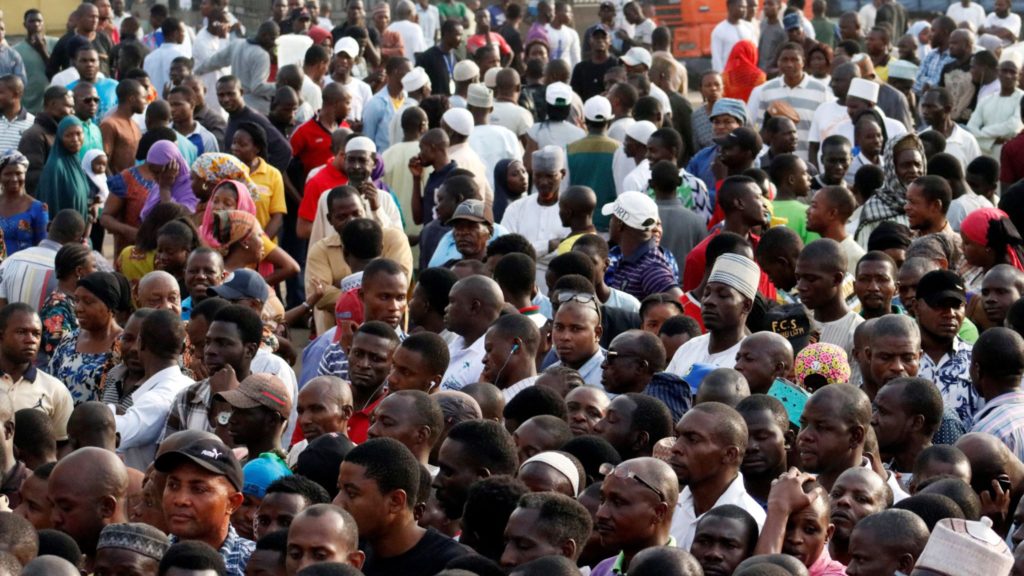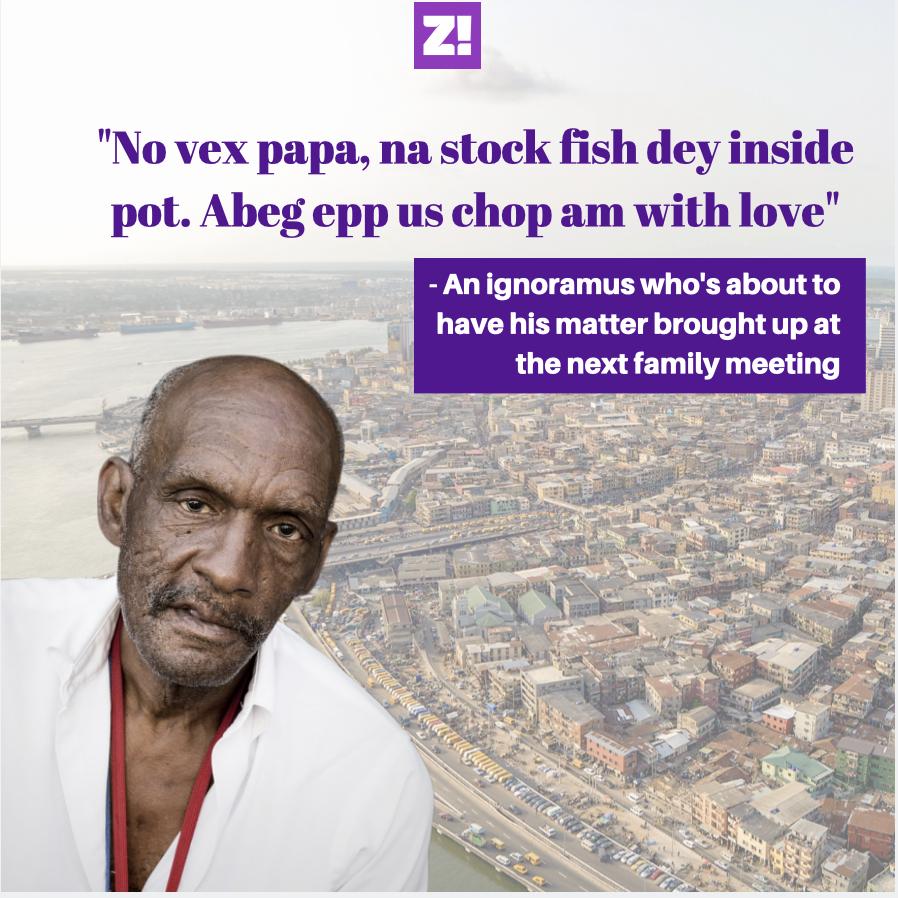I spent the first week of August 2022 exploring Abuja. I’ve lived here all my life but haven’t really explored the city because I have very strict Nigerian parents. I needed a break from house chores and some time to hang out with friends without thinking about getting back home early. So let’s just say, I found a way to get them off my case for a week. Here’s a breakdown of what my budget for two looked like if you’re planning to do the same.
Our starting budget for this trip was ₦200k for six days. Let’s see how well that worked out.
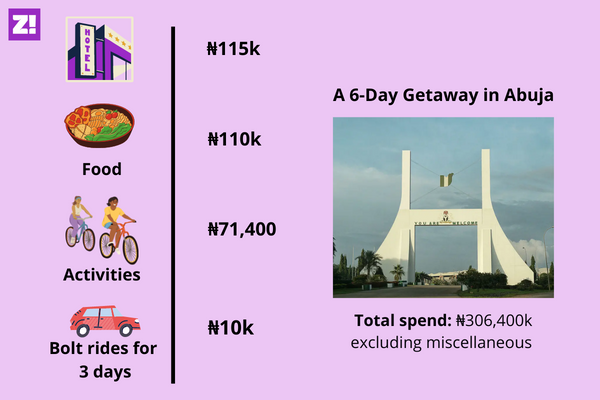
Accommodation
Criteria for picking a hotel
- Proximity to central locations
I started with a Google search for hotels within town — preferably within the Municipal Area Council like Wuse, Maitama, Wuye and Utako. If you want to push it, Garki and Lifecamp should be your worst-case scenario.
Staying outside those areas adds to your transport fare because most of the spots to eat and have fun are located in those central areas. If you hear anything like Kubwa, Lugbe, Lokogoma or Karimo, don’t try it — well, except the accommodation you’re getting is free.
RELATED: 7 Nigerians Tell Us Their Worst Hotel Experience
- Price point and quality
Now that you’ve gotten a sense of the areas to consider, the hotel rates are a completely different ball game. The closer you are to central areas, the more expensive the rates are. Our ₦200k budget covered only three nights in some hotels, so imagine the stress we went through trying to find a decent place that wouldn’t wreck my bank account.
“Decent” meant the beddings were extremely neat — even though I always bring mine — bathrooms had walk-in showers and standard rooms come with complimentary breakfast. And considering the insecurity, the hotel had to be in a largely residential area where there are usually a lot of security guards.
With those two main criteria, three options came up: the White Royalty Palace Hotel, Maitama; Imah Apartments, Wuse Zone 5; and Belmont Hotel, Wuye. White Royalty was ₦20k per night, Imah was going for ₦15k, while Belmont was ₦25k. At the start of my trip, the last two were fully booked. We checked them out on the third day of my trip, but I’ll share my experience at White Royalty first.
This hotel made the list because a friend recommended it as one of the more affordable places to try. We’d rate our experience there 6/10, and here’s why:
Pros:
- Located in a central area, very accessible and serene.
- Rooms are available for ₦20k a night, quite affordable in Abuja. However, I’d say, if you can, squeeze out ₦5k extra to get the ₦25k room which is much more spacious.
- Bathrooms with walk-in showers and a water heater.
Con:
- No full-sized mirrors in the rooms, which made it hard to see whether you were looking like a snack.
- Mattresses were not as firm as hotel beds should be.
- Beddings weren’t neat enough. I got a torn blanket in my room on my second night.
- Cleaning service was a 2/5 for me.
- No complimentary breakfast
- Walls so thin, you’ll hear everything going on in the next room.
After spending three nights at White Royalty Palace Hotel, we decided to check out Imah Apartments. It was ₦15k per night, so I was very sceptical. But who doesn’t like cheap thrills?
First, the location was off the mark. Yes, it was in a central area, but the roads were too narrow for two cars to move freely at the same time, and the building needed renovation because it looked run down and old. The staff, however, were very polite and carried our bags up the three flights of stairs we had to climb.
Note that Imah Apartments isn’t a hotel. It’s a short-let apartment in a building, where people can rent out one of the four rooms for ₦15k per night, or ₦65k for all the rooms.
The rooms looked pretty decent, but they were tiny and the ones available had bathtubs instead of showers. I’m scared of slipping and falling in tubs, so it was a no for me. I may have overlooked those flaws if the whole place didn’t smell like burnt soup.
Pros:
- Affordable.
- Located in a central area.
- Easy to locate and the staff were helpful with directions.
Cons:
- Rooms are very small.
- Not the cleanest space.
- Not a place you can check into late at night because the reception closes at 10 p.m. But if you call ahead, they can wait for you to arrive. It also didn’t feel secure because there was no one at the reception most times.
- No complimentary breakfast.
We ended up not staying at Imah apartments, and checked into Belmont Hotel, Wuye, the same day. The reviews on Google were encouraging, so we decided to check it out. I called to confirm if they had a standard room for ₦25k available because some reviewers mentioned that they were always booked. Luckily, they had one available when we called.
I was sold by the ambience at the reception. Everywhere smelt nice and looked extremely neat. The room didn’t disappoint either. My only issue would be the space, but ₦25k is their cheapest, so I wasn’t surprised.
Pros:
- Affordable, and every room came with a complimentary breakfast.
- Food was quite affordable for a hotel because we could get a plate of fried yam and egg sauce for ₦3k.
- Staff was very nice and helpful with getting our bags in and out of the room.
- Secure space with security cameras at almost every corner of the corridors and staircase
- Extremely neat bathrooms.
Cons:
- While the location is accessible and not too far from the central areas, Bolt fares from the hotel cost an average of ₦1k – ₦1.1k compared to the ₦600 – ₦800 you’d pay if you were staying in other areas.
- Access road to the hotel was locked between 7 – 10 p.m. You’d have to walk down to the hotel if you came back really late.
Between the three nights, we spent at White Royal Palace Hotel and the two at Belmont Hotel, we spent ₦115k.
Food
If you eat like a thief in the night, Abuja will finish your money. We spent ₦110K to feed two people for a week. But in this economy, that’s fair.
For the most part, we binged on Chicken Republic food because it was the most convenient and affordable to buy.

We basically ate one meal a day and binged on snacks from supermarkets around our hotel.

RELATED: Creator Spotlight: Mitya, the Mukbang Creator Who Tells Stories Through Food
Activities
It’s obvious what we really did in Abuja was eat, but here are some of the fun activities we tried:

Things are a lot pricier than they used to be and Value Added Tax (VAT) is another issue, but if you’re visiting Abuja for leisure, you need to be sure you can tick these boxes. My favourite activity was the paint and sip because there’s live music close by, with a Bluetooth speaker if you’d like to play your own music.
Overall, I went over my ₦200k budget by ₦99k. I also didn’t bother tracking the money I spent on Bolt beyond the ₦10k cash I spent in about three days. But don’t stress, the fares range between ₦600 – ₦1100. So I’d say, ₦350k is an ideal budget for one week of fun in Abuja.
ALSO READ: 7 Hangout Spots in Abuja for When You’re Feeling Adventurous




